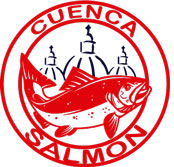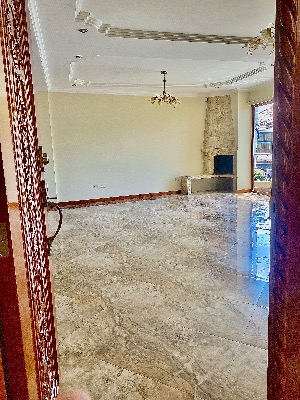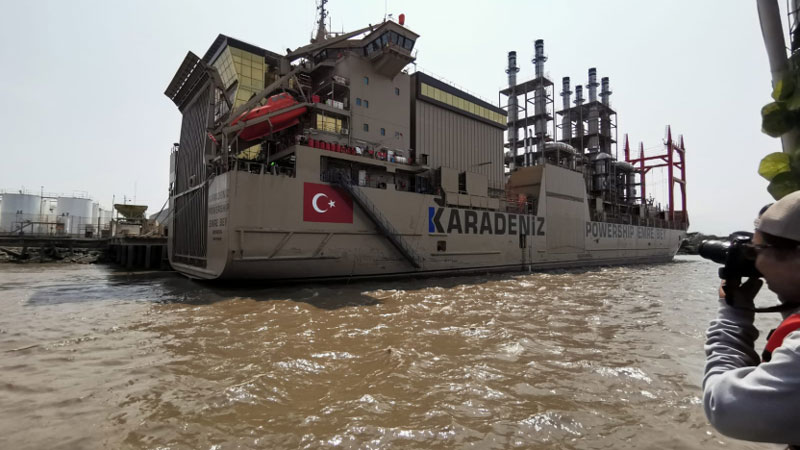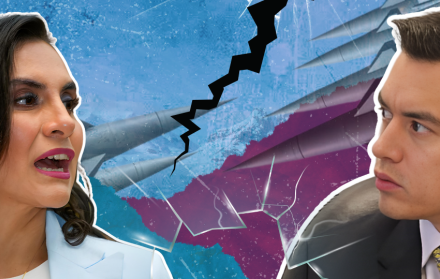As Int’l Eucharistic Congress begins in Quito, Pope Francis calls for ‘radical fraternity’ to heal the world
By La Croix International staff
Pope Francis, along with other Church leaders, called for “radical fraternity” to heal a world fractured by division, poverty, and environmental crises during the 53rd International Eucharistic Congress in Quito, Ecuador. The congress has drawn thousands from over 40 countries.

Thousands of the Catholic faithful participated in the opening day mass of the International Eucharistic Congress at the Quito airport, Sept. 8.
Pope Francis, currently on his 11-day journey to Indonesia, Papua New Guinea, East Timor, and Singapore, also sent a video message September 8 in Spanish for the International Eucharistic Congress in Quito. He encouraged participants to recover radical fraternity with God and with one another. He also spoke of the close link between the Eucharist and fraternity to build a more just and humane world.
That world, he added, is built upon “a profound brotherhood, born of union with God, born of allowing ourselves to be ground, like wheat, so that we can become bread, the body of Christ, thus participating fully in the Eucharist and in the assembly of the saints.”
The International Eucharistic Congress is being held in Quito, Ecuador, from September 8–15, in honor of the 150th anniversary of the nation’s consecration to the Sacred Heart of Jesus. The event in Quito, where the first National Eucharistic Congress was held in 1886, has drawn over 4,000 participants from at least 40 countries worldwide. During the September 8 opening Mass, more than 1,500 children celebrated their First Communion. The theme for the 2024 congress is “Fraternity to Heal the World.”
According to the “basic text” of the 53rd International Eucharistic Congress document, “We are living in a wounded world – a world with wounds still open and festering,” and that is why “it is not merely a matter of healing relations between the various peoples inhabiting the face of the earth, but about healing the human heart’s wounds that obstruct peace and reconciliation.”
Bread as a symbol of unity
In his message, the pope also drew from the early Church Fathers recalling how bread, as a symbol of the Eucharist, united people, as it cannot be made from a single grain. “That the sign of bread kindles in the people of God the desire for fraternity, for just as bread cannot be kneaded from a single grain, so too must we walk together, for ‘though we are many, we are one body, one bread.’”
Pope Francis called for a proactive form of “Eucharistic fraternity,” citing the example of Venerable Sister Angela Maria of the Heart of Jesus, a German Trinitarian Sister of Valencia nun, born Angela Autsch who died in the Auschwitz concentration camp during World War II — for her “proactive” fraternity. The pope recalled that even before she was arrested by the Nazis, “when the evil looming over the world was already evident”, she inspired her family to resist through simple yet powerful acts, such as regularly receiving Communion, believing that the Eucharist fortified both the Church and its members in their struggle against evil.
“These simple gestures,” Pope Francis said, “make us more aware that if one member suffers, the whole body suffers with it; they help us become Christ’s Simon of Cyrene, who took upon Himself the weight of the world’s suffering in order to heal it.”
He urged the faithful to learn this lesson and to recover this “radical fraternity” with God. “We are one in the one Lord of our lives; we are one in a way that we cannot fully understand, but what we do understand is that only in that unity can we serve the world and heal it—heal the world,” he said.
Leaders stress healing in a divided world
In his opening address at the congress, Salesian Archbishop Alfredo José Espinoza Mateus of Quito said the Eucharist “challenges us to be true builders of fraternity” to “heal the wounds of the world.” It also “commits us to be authentically brothers in the midst of a world full of violence, death, wars; a world that divides, not a world that unites; a world that turns man into an enemy and not a brother.”
Father Corrado Maggioni, president of the Pontifical Committee for International Eucharistic Congresses, noted in his message that, like the Eucharist, the “congress is not an idea but an experience to be lived.” There will not only be “things to listen to, but experiences to exchange,” he said.
Referring to the importance of “doing together,” Father Maggioni said, “the congress is called to do the same. Everything that congress offers is the fruit of great work, the work of many.” He also said the Eucharist is an event of the People of God, a meeting of the entire People of God: bishops, priests, and lay people, all gathered around the Eucharist.
The opening Mass was presided over by Brazilian Archbishop Jaime Spengler of Porto Alegre and president of the Latin American and Caribbean Bishops’ Council (CELAM). “We are called to be a fraternity nourished by the body and blood of the Lord to heal the world,” he said.
“We live in a wounded world. Along with the wounds of poverty and hunger for many, the ecological crisis is perhaps the other great wound of the world. A wound that we are called to heal because we are the bridge between God and the world; we are also responsible for the destiny of creation,” Archbishop Spengler said. Christians, he said, must not forget that “the beginning of the unity of followers of Jesus found its strength in Jesus’ call to friendship, to intimacy.”
_________________
Credit: La Croix International
















